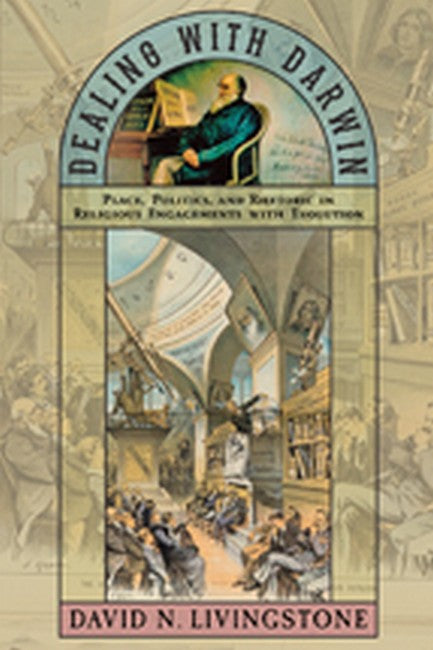Using place, politics, and rhetoric as analytical tools, historical geographer David N. Livingstone investigates how religious communities sharing a Scots Presbyterian heritage engaged with Darwin and Darwinism at the turn of the twentieth century. His findings, presented as the prestigious Gifford Lectures, transform our understandings of the relationship between science and religion.The particulars of placewhether in Edinburgh, Belfast, Toronto, Columbia, or Princetonshaped the response to Darwin's theories. Were they tolerated, repudiated, or welcomed? Livingstone shows how Darwin was read in different ways, with meaning distilled from Darwin's texts depending on readers' own historiestheir literary genealogies and cultural preoccupations. That the theory of evolution fared differently in different places, Livingstone writes, is ''exactly what Darwin might have predicted. As the theory diffused, it diverged."" Dealing with Darwin shows the profound extent to which theological debates about evolution were rooted in such matters as anxieties over control of education, the politics of race relations, the nature of local scientific traditions, and challenges to traditional cultural identity. In some settings, conciliation with the new theory, even endorsement, was possibledemonstrating that attending to the specific nature of individual communities subverts an inclination to assume a single relationship between science and religion in general, evolution and Christianity in particular. Livingstone concludes with contemporary examples to remind us that what scientists can say and what others can hear in different venues differ today just as much as they did in the past.""Livingstone's achievement shows how important local events were in shaping attitudes to and even the meaning of 'Darwinism' in communities where biological evolution, particularly the specific mechanism of natural selection, was a divisive issue. The author brings an exceptional degree of sophistication to his task, exploring ways in which different local contexts also affected what participants in these post-Darwinian debates felt able to say in public. Livingstone provides a detailed and authoritative account of the contours of debate, the careers of the respective adversaries, and the political issues that were most pressing for them.""John Hedley Brooke, University of Oxford""Dealing with Darwin is by a widely respected scholar who is clearly at the top of his game. It is an exciting and comprehensive text that will serve as a leading discussion point and intellectual signpost for the field, particularly for those interested in science and religion and in history. I am very enthusiastic about it!""Janet Browne, Harvard University

